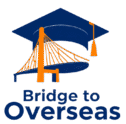Study in Germany
Top-ranked universities, low tuition, and strong research and career opportunities.
Studying in Germany is one of the easiest routes to live and work in Europe. Many public universities charge no tuition fees and only ask for semester contributions between €250 and €1,500. After graduation you can look for a job and change your student visa to a work visa. Germany had an unemployment rate around 5.8 percent in 2024, which shows good job chances for graduates.
If you are married, dependents under 18 can join you with a family visa and they are usually allowed to work and study. German language skills are important for many programs, so plan to study German or choose English-taught programs when available.
Germany Study at a Glance
| Level | Typical Age | Typical Cost (EUR) | Scholarship Chance | Language |
|---|---|---|---|---|
| Primary / Secondary (State) | 5–18 | State schools: free for residents | N/A | German |
| Bachelor's | 18–25 | Public: €250–€1,500 per semester, Private: tuition varies | Low to medium | German or English (program dependent) |
| Master's | 23–30 | Public: often low or free, Private: up to €30,000 per year | Medium | German or English |
| PhD | 27–40 | Mostly tuition-free, semester fees ~€300 | High (funded positions available) | German or English |
Leading German Universities
| University | City | Typical Semester Fee |
|---|---|---|
| Technical University of Munich (TUM) | Munich | €85–€102 |
| Ludwig Maximilian University of Munich (LMU) | Munich | €85 |
| Heidelberg University | Heidelberg | €1500 + small semester fee |
| Free University of Berlin | Berlin | €312 |
| Humboldt University of Berlin | Berlin | €316 |
| Karlsruhe Institute of Technology (KIT) | Karlsruhe | €180–€1,500 |
| RWTH Aachen University | Aachen | €319 |
| TU Berlin | Berlin | €113 |
| University of Freiburg | Freiburg | €1,500+ |
| University of Bonn | Bonn | €323 |
Study Levels & Key Notes
Bachelor's, 3 to 4 years
Most bachelor's programs are 3 or 4 years. Many public universities teach in German, so you may need a German language certificate or attend a foundation program first.
Master's, 1 to 2 years
Master's degrees are often 1 or 2 years. Many programs are available in English. A strong bachelor's degree helps for admission and scholarship applications.
PhD, 3 to 5 years
PhD programs are research focused. Most PhDs are funded or tuition-free, and candidates often receive stipends or scholarships.
Admission Requirements
- TestAS for general aptitude, in German or English.
- TMS for medical and dental studies, held twice per year.
- German language proof such as TestDaF or DSH for most German-taught programs.
- Proof of funds, usually about €11,904 to €12,324 per year, via a blocked account or scholarship.
- Health insurance compulsory for registration and residence permit.
- Apply for a student visa before travel, typically via VFS or the local German embassy service.
Costs and Scholarships
| Item | Typical Amount |
|---|---|
| Semester contribution (public) | €250–€1,500 |
| Living cost estimate | €850–€1,200 per month |
| Proof of funds (visa) | €11,904 per year (approx.) |
Main Scholarship Sources
- DAAD scholarships for international students and researchers.
- Erasmus Mundus programs for international Master degrees.
- Deutschlandstipendium for merit-based university support.
- University-funded scholarships and research grants.
Ready to plan your South Korea study path? Get a free study plan with program and visa guidance.
Get a Free Study Plan

